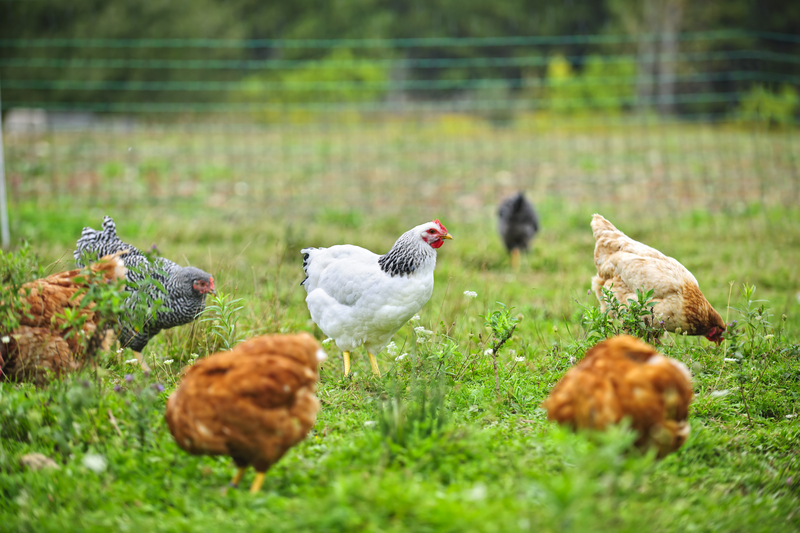
In the quest for better health and well-being, many individuals are turning to natural growing techniques that promise superior nutritional benefits and environmental sustainability. Organic and biodynamic farming stands out among these methods for their commitment to holistic practices that prioritize soil health, biodiversity, and ecological balance. This article explores the principles of organic and biodynamic farming, their impact on nutritional value, and the broader health benefits they offer.
Understanding Organic Farming

Organic farming is an agricultural method that avoids the use of synthetic chemicals, such as pesticides and fertilizers, and genetically modified organisms (GMOs). Instead, it relies on natural processes and materials to maintain soil fertility and control pests.
Key Principles of Organic Farming
- Soil Health: Organic farming emphasizes the importance of healthy soil as the foundation for robust plant growth. Techniques such as crop rotation, cover cropping, and composting are used to enhance soil fertility and structure.
- Biodiversity: Organic farms support biodiversity by cultivating a variety of crops and maintaining natural habitats for beneficial insects and wildlife. This diversity helps to create a balanced ecosystem that can naturally manage pests and diseases.
- Sustainability: Organic farming aims to minimize environmental impact by reducing pollution, conserving water, and promoting long-term ecological balance.

Nutritional Benefits of Organic Foods
Research indicates that organic foods often contain higher levels of certain nutrients compared to conventionally grown counterparts. This can be attributed to organic farms’ natural growing techniques and healthier soil conditions.
Nutrient Density: Organic produce tends to have higher concentrations of vitamins, minerals, and antioxidants. Studies have shown that organic fruits and vegetables can contain up to 20-40% more antioxidants than non-organic varieties. These antioxidants play a crucial role in neutralizing harmful free radicals in the body, thereby reducing the risk of chronic diseases. Improve portion control with natural foods for better gut health and bodily healing.
Lower Pesticide Residues: One of the most significant advantages of organic foods is the reduced exposure to pesticide residues. Conventional farming often relies heavily on chemical pesticides, which can leave residues on produce. On the other hand, organic farming uses natural pest control methods, resulting in cleaner, safer food.
Exploring Biodynamic Farming
Biodynamic farming takes the principles of organic farming a step further by incorporating a holistic approach that views the farm as a self-sustaining ecosystem. Developed by Austrian philosopher Rudolf Steiner in the early 20th century, biodynamic farming combines organic practices with spiritual and cosmic principles.

Key Principles of Biodynamic Farming
- Closed-Loop Systems: Biodynamic farms aim to be self-sufficient by recycling all nutrients and organic matter back into the soil. This includes composting animal manure and plant waste to create nutrient-rich soil amendments.
- Biodynamic Preparations: Special herbal and mineral preparations are used to enhance soil fertility and stimulate plant growth. These preparations are applied in small amounts but are believed to have powerful effects on the farm’s vitality.
- Cosmic Rhythms: Biodynamic farming considers the influence of cosmic forces, such as lunar and solar cycles, on plant growth. Farmers follow a biodynamic calendar to determine the best times for planting, cultivating, and harvesting crops.
Nutritional Advantages of Biodynamic Foods
Biodynamic farming’s emphasis on soil health and ecological balance often results in produce with exceptional nutritional qualities. The meticulous care and attention to natural processes ensure that plants are grown in optimal conditions, leading to nutrient-rich harvests.
Enhanced Flavor and Quality: Many proponents of biodynamic farming argue that the produce has superior flavor and quality compared to conventionally grown food. This is attributed to the healthy, biologically active soil that provides plants with all the necessary nutrients for robust growth.
Increased Vitality: Biodynamic foods are believed to possess greater vitality, the life force sustaining all living organisms. Although not scientifically quantifiable, this concept is an essential aspect of the biodynamic philosophy and is thought to contribute to overall health and well-being.

Health Benefits of Consuming Organic and Biodynamic Foods
Incorporating organic and biodynamic foods into your diet can offer numerous health benefits beyond just superior nutrition. Here are some key advantages:
Reduced Chemical Exposure: By choosing organic and biodynamic foods, you minimize your exposure to synthetic pesticides, herbicides, and fertilizers. This can lower the risk of developing health issues associated with these chemicals, such as hormonal imbalances, neurological disorders, and certain cancers.
Improved Gut Health: The diverse and beneficial microorganisms present in organic and biodynamic soil can enhance the microbial diversity of the food grown in it. This can positively impact gut health, which is crucial for overall well-being, including immune function, mental health, and nutrient absorption.
Support for a Healthy Environment: Organic and biodynamic farming practices promote environmental sustainability by protecting soil health, conserving water, and reducing pollution. By supporting these farming methods, you contribute to a healthier planet, which in turn supports human health.

Exploring the Future of Biodynamic Farming and You
Organic and biodynamic farming methods offer more than just environmentally friendly alternatives to conventional agriculture; they provide tangible nutritional and health benefits. By prioritizing soil health, biodiversity, and ecological balance, these natural growing techniques produce food that is rich in essential nutrients and free from harmful chemicals. Embracing organic and biodynamic foods can enhance your diet, support overall health, and contribute to a sustainable future.

